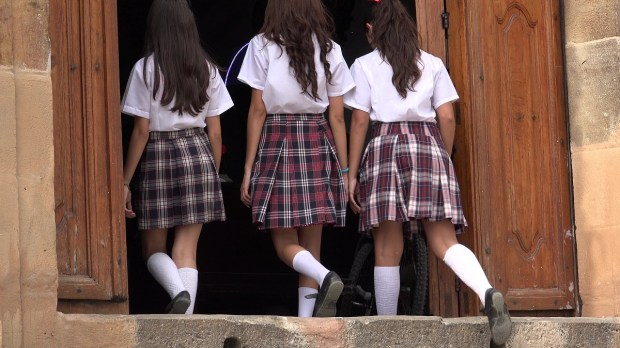Lenten Campaign 2025
This content is free of charge, as are all our articles.
Support us with a donation that is tax-deductible and enable us to continue to reach millions of readers.
England has proposed to remove a stipulation that requires religious-based schools to reserve half their seats for students of other faiths. The announcement was made by Education Secretary Gillian Keegan, and was welcomed by Bishop Marcus Stock of Leeds.
In her comments on the proposal, Keegan recalled her own experience with Catholic school, which she attended for both primary and secondary phases of her education:
“Faith groups run some of the best schools in the country, including in some of the most disadvantaged areas, and it’s absolutely right we support them to unleash that potential even further – including through the creation of the first ever faith academies for children with special educational needs.”
The 50% cap on students of the same faith as the school was implemented in 2010, as part of the free schools program. These schools are funded by the government and they are left to run themselves, but the cap was initiated in order to ensure a wider demographic of students would be considered. The Guardian notes that the cap was only implemented in cases where there were more applications than seats.
In addition, the proposed changes would allow churches and religious organizations to open new faith-based schools specifically for children with special needs. Nigel Genders, the Church of England’s chief education officer, hailed this particular change, which he said would allow the Church of England to “serve the needs of more children in more communities, irrespective of their faith background.”
According to the Catholic Bishops’ Conference of England and Wales, the change will allow the Catholic Church to open new free schools. The report implied that the Church had previously decided not to open new free schools under the rule that would require them to turn away Catholic students to maintain the 50% cap.
Bishop Stock, of the Diocese of Leeds, commented that the removal of the cap will allow Catholic schools to “respond to differing local educational demands,” and highlighted again the benefit it would be to students with special needs. He said:
“Catholic education not only provides a high performing school sector and promotes the formation of children in values and virtues; it is more ethnically diverse than other schools, educates more pupils from the most deprived backgrounds, and builds social cohesion within our communities.”




